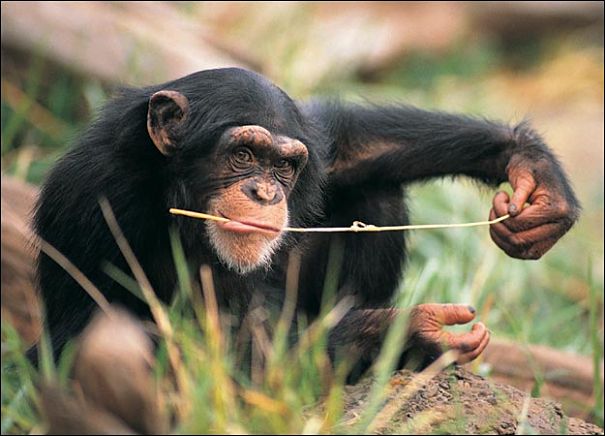
In particular, one might expect human-specific adaptations in metabolic pathways. Some of the dietary changes during human evolution were likely accompanied by corresponding molecular adaptations.

#Chimpanzee diet driver#
For example, the advent of cooking, which has led to consumption of a higher quality diet, is suggested to underlie a concurrent decrease in gut size and increase in brain size and perhaps is also a driver of certain shifts in human social behavior 4, 5. This extreme dietary shift in recent human history has been proposed as a major driving force of human evolution. In contrast to the diets of most modern human populations, which incorporate many foods including meat but are often starch-based (in agricultural subsistence societies: 50–70% of total calories from starch 2), chimpanzees are predominantly frugivorous and ingest relatively little starch and meat compared to humans 3.
#Chimpanzee diet series#
This difference can be understood as a consequence of a series of major dietary shifts in the evolutionary history of the human lineage, including meat scavenging and hunting behavior, the controlled use of fire and cooking, plant and animal domestication and most recently, the widespread use of chemical additives 1. Human diets, whether those of traditional hunter-gatherer societies, subsistence agriculturalists, or modern industrialized societies, are different from the diets of all non-human primates. We identified a number of metabolic compounds with lineage-specific profiles, including examples of human-species metabolic differences that may be directly related to dietary differences. In addition, we found that differences in metabolic concentration across species are correlated with inter-species differences in the expression of the corresponding enzymes, which control the same metabolic reaction. We show that dietary differences between species have a strong effect on metabolic concentrations. To address this gap, we performed a comparative study using a combination of gene expression and metabolomic profiling in livers from humans, chimpanzees and rhesus macaques. The metabolic consequences of these regulatory differences, however, remained unknown. Consistent with this notion, comparative studies of gene expression levels in primates have found that the regulation of genes with metabolic functions tend to evolve rapidly in the human lineage. It is hypothesized that a dietary shift during human evolution has been accompanied by molecular adaptations in metabolic pathways. Among few obvious differences, humans consume more meat than most non-human primates and regularly cook their food. The change in diet was not able to abolish R/R behaviour entirely for these chimpanzees.Human diets differ from those of non-human primates. This study shows that diet change can contribute to a reduction in R/R, yet this may not be due to the change of diet quality, but to the change in diet as such. Individuals that showed R/R in the study period still showed this behaviour several years later, suggesting that R/R may not be related to current welfare but possibly become a habit, where stress and R/R become dissociated and the behaviour persists in improved conditions and over time. Still, the R/R rate in three individuals that showed most R/R did not concur with temperature, countering an effect of temperature on R/R. However, the data could not conclusively dismiss temperature as a factor or confound in the reduction of R/R.


Measures of stress and boredom did not show any correlation to R/R behaviour. In addition, the relationship with self-directed behaviour, inactivity level and temperature, proxies of the alternative factors stress, boredom and crowding, were studied. For this reason, the effect of a diet change towards a more fibre-rich diet on R/R was studied in the Amersfoort Zoo chimpanzee group comprising 15 individuals. R/R may have several causes, among them a suboptimal diet. Captive chimpanzees regularly show abnormal behaviour, including regurgitation and reingestion (R/R).


 0 kommentar(er)
0 kommentar(er)
